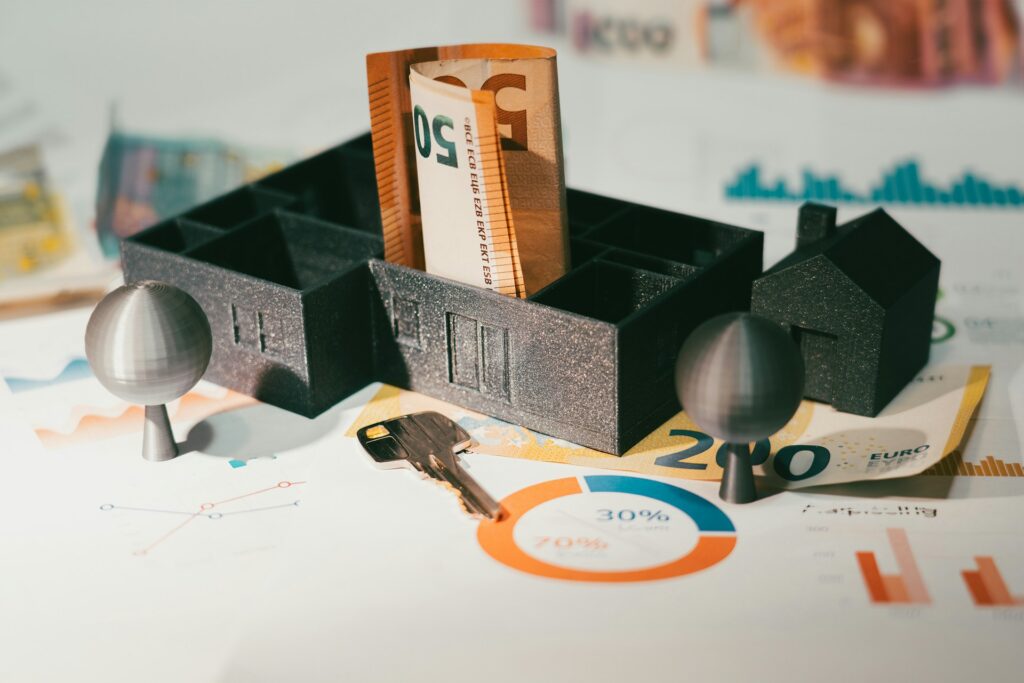Physical Address
304 North Cardinal St.
Dorchester Center, MA 02124
Physical Address
304 North Cardinal St.
Dorchester Center, MA 02124

Paying off debt is never easy, especially when you’re already living on a tight budget. The idea of increasing your income can sound like the perfect solution to eliminate your debt faster. But what if you don’t have the option to earn extra money right now?
Whether you’re juggling a full-time job, caring for your family, or simply don’t have the bandwidth to take on a side hustle, you can still tackle your debt head-on. In this article, we’ll explore how you can pay off debt without needing any extra income.
Let’s dive in and show you how you can take control of your finances, regardless of your current earnings.

The first step to paying off debt is understanding exactly what you’re dealing with. How much debt do you have? To get a complete picture of your financial situation, gather all your statements, including credit card bills, loans, mortgages, and any other outstanding balances.
Make a list of all your debts, including:
This will help you prioritize which debts to focus on first. It’s a crucial step in understanding where your money is going and how much progress you need to make.

You don’t need extra income to free up cash for debt repayment—you just need to reduce your spending. While this may require some lifestyle adjustments, it’s often one of the most effective ways to find money to pay off debt.
Look at your bank and credit card statements and track where your money is going. You might be surprised at how much you’re spending on things that aren’t essential. For example:
Reducing discretionary spending can free up funds you can put directly toward your debt.
One powerful way to cut back on unnecessary expenses is to implement a no-spend challenge. This could mean cutting out non-essential purchases for a month, or it could be as simple as committing to not buying coffee every morning. Small daily savings can add up quickly.
If you’re serious about paying off your debt, you need a solid budget. A well-organized budget ensures that you’re living within your means while still making progress toward debt repayment.
The 50/30/20 rule is an easy-to-follow budgeting method that divides your income into three categories:
If your income is fixed, but you’re able to cut back on your wants, this is an excellent structure to follow. Adjusting where your money goes can make room for paying off debt without needing extra income.
Once you’ve set up your budget, make sure to treat debt repayment as a non-negotiable category. This should be part of the 20% allocated for savings and debt. If you’re feeling ambitious, try increasing the amount dedicated to paying off your debt by cutting back on some wants.
Now that you have a better understanding of your debt and have freed up some extra money in your budget, it’s time to start paying it down.
While there are different strategies for paying off debt, one of the best ways to save money in the long run is to focus on the debts with the highest interest rates first.
The Debt Avalanche Method involves paying off your high-interest debts first, while making minimum payments on the others. Here’s how it works:
This method minimizes the amount you pay in interest and helps you get out of debt faster. If you have credit card debt with interest rates upwards of 20%, this strategy could save you hundreds (or even thousands) of dollars in interest.
If you find it difficult to stay motivated by the debt avalanche, the Debt Snowball Method might work better for you. With this method:
The idea behind the Debt Snowball Method is that paying off smaller debts gives you quick wins, which can be motivating and help build momentum. While it may not save you as much money on interest, it can keep you motivated in the long run.
If your debt feels overwhelming, don’t be afraid to reach out to your creditors to negotiate better terms. Many lenders are willing to work with you to make repayment more manageable, especially if you’re experiencing financial hardship.
Start by contacting your credit card companies, loan servicers, and other creditors. Explain your situation, and ask if they’d be willing to:
Many creditors offer hardship programs for those struggling with payments. The worst they can do is say no, but you might be surprised at how much they’re willing to work with you.
If you have multiple high-interest debts, consider consolidating them into a single loan with a lower interest rate. This could simplify your payments and lower your overall interest costs.
Similarly, refinancing options for student loans or mortgages can reduce your monthly payments and ease the pressure of paying off debt.
You don’t need a side hustle to come into extra money—sometimes, windfalls like tax returns, bonuses, or cash gifts can give you a much-needed financial boost. Instead of spending this money on non-essential items, use it to accelerate your debt repayment.
Whenever you receive unexpected income, apply it directly to your debt. For example:
By applying these windfalls to your debt, you can make substantial progress without having to change your day-to-day income.
Paying off debt isn’t an overnight process. It can be slow, especially when you’re not bringing in extra income. But persistence is key. Keep reviewing your budget regularly, stay focused on your goals, and don’t let setbacks discourage you.
As you make progress, celebrate small milestones along the way. Paying off a credit card, reducing your overall debt, or crossing a goal line can be motivating and keep you on track.
One of the best ways to stay committed to your debt repayment plan is to tell someone about your goals. Share your journey with a trusted friend, family member, or even an online community. Knowing that someone is cheering you on can make a world of difference.
Paying off debt without extra income is absolutely possible—it just takes dedication, discipline, and strategic planning.
By cutting back on unnecessary expenses, creating a realistic budget, negotiating your debts, and using any windfalls to your advantage, you can take control of your finances and work toward financial freedom. It won’t be easy, but with persistence and patience, you’ll see results.
Remember, every little bit helps. Stay focused on your goal of becoming debt-free, and in time, you’ll be free of those financial burdens. You’ve got this!